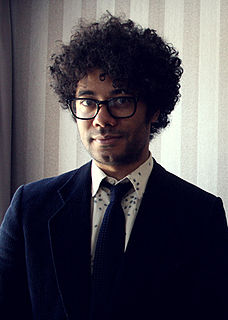A Quote by Ramez Naam
The real use of AI in industry is generally for very narrow pattern-matchers - a better search algorithm, an object-detection algorithm, etc. These things are tools which we can use - for good or evil. But they're nothing like self-aware beings.
Related Quotes
The good things at the U.S. health care system are that we have a well-trained labor force, particularly physicians; I don't think any nation trains doctors better. We have the latest technology, simply because we throw so much money at it. We are really technology-hungry in this country. That's a good thing. Our system more treats patients like customers, which is a good thing; that it's very customer-friendly. And it's very innovative, both in the products we use, in the techniques we use and the organizational structures we use. Those are all very good things, highly competitive.
To regard human beings as tools - as instruments - for the use of other human beings is not only unscientific but it is repugnant, stupid and short sighted. Tools are made by man but have not the autonomy of their maker - they have not man's time-binding capacity for initiation, for self-direction, and self-improvement.
Klout and various measurements of influence are fun. I love to see where I score on them, but there's a computer algorithm behind the calculation. If there's an algorithm, it can be gamed. Even if it's not gameable, you have to take a leap of faith that the number of followers, retweets, mentions, whatever really mean something.
Personally, I think government is a tool, like a hammer. You can use a hammer to build or you can use a hammer to destroy; there is nothing intrinsically good or evil about the hammer itself. It is the purposes to which it is put and the skill with which it is used that determine whether the hammer's work is good or bad.
You can harvest any data that you want, on anybody. You can infer any data that you like, and you can use it to manipulate them in any way that you choose. And you can roll out an algorithm that genuinely makes massive differences to people's lives, both good and bad, without any checks and balances.





































